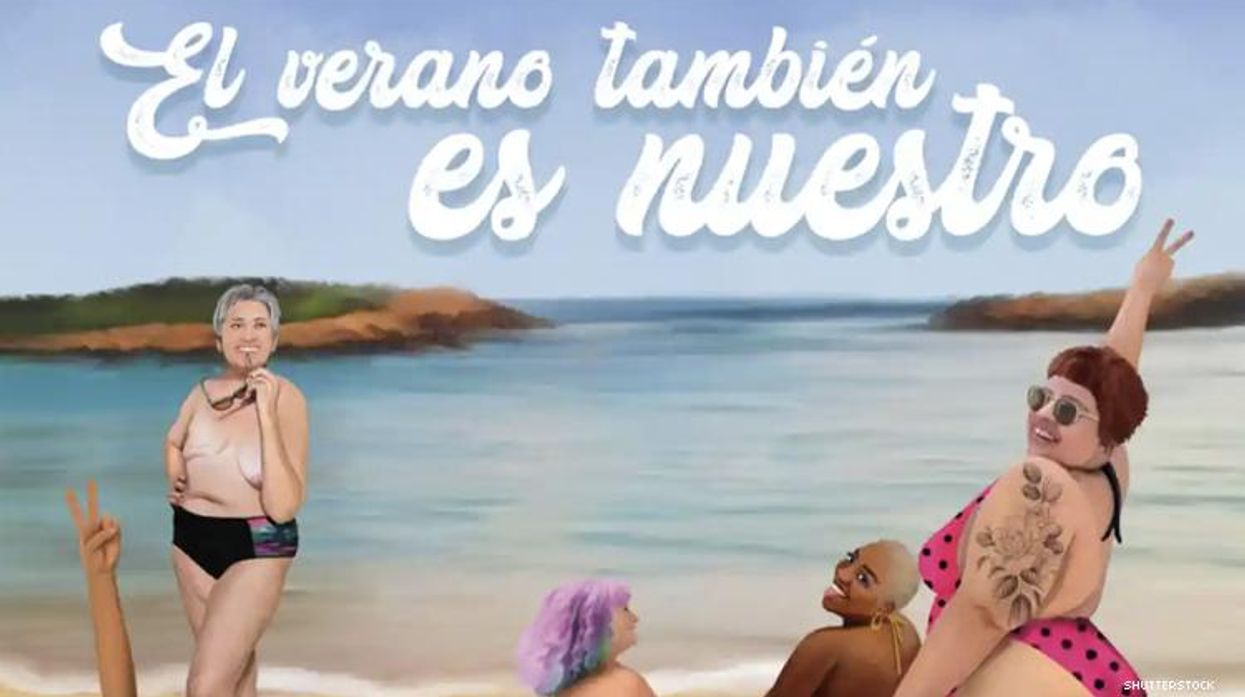News
Spain's All Bodies Are Beach Bodies Campaign Goes Awry

How the Spanish federal agency for gender equality’s inclusive summer campaign upset the very women it portrayed.
August 01 2022 4:00 AM EST
By continuing to use our site, you agree to our Privacy Policy and Terms of Use.

How the Spanish federal agency for gender equality’s inclusive summer campaign upset the very women it portrayed.
It started out so promising. Spain released a compelling new diversity campaign featuring an artistic rendering of women of inclusive age, color, size, and sexuality enjoying a day at the beach, and declaring “Summer is ours too. Enjoy it how, where and with whomever you want.”
It’s a wonderful sentiment, especially coming from a federal agency. What could go wrong?
Among the women in the ad are a topless older white woman with a mastectomy scar, several models of size, and one female interracial couple holding hands.
“All bodies are beach bodies,” Ione Belarra, the leader of Podemos who serves as social rights minister in Spain’s Socialist-led coalition government told the Guardian upon the release of the campaign. “All bodies are valid and we have the right to enjoy life as we are, without guilt or shame. Summer is for everyone!”
“Diverse bodies, free of gender stereotypes, occupying all spaces," Antonia Morillas, head of Spain's Women’s Institute, which is behind the initiative, tweeted. Established in 1983, the institute was the first European governmental agency devoted especifically to foster gender equality. "Summer also belongs to us. Free, equal and diverse," Morillas tweeted.
The Women’s Institute said at the time, “Today we toast a summer for all, without stereotypes and aesthetic violence against our bodies.”
Again, great message. Yet within a day the campaign was embroiled in controversy — not sparked by haters offended by the portrayal of large sized and queer women, but by the very women portrayed in the campaign.
That’s because those on social media quickly realized that the artwork by Arte Mapache used real women as models, women who were not asked for their permission, nor credited, nor compensated.
So, just a day after the campaign was launched, Mapache issued a public apology for using the models’ likenesses without their permission, and for using a typeface that she apparently thought was free.
“Given the — justified — controversy over the image rights in the illustration said I have decided that the best way to make amends for the damages that may have resulted from my actions is to share out the money I received for the work and give equal parts to the people in the poster,” the artist said. (She reported that she was paid a commission of €4,490 ($4,586.36)).
In her apology Arte Mapache said she had never intended to “abuse” the models’ images, and had only sought to demonstrate how great an inspiration they had been.
A spokesperson for the Women’s Institute told the Guardian it was aware of the issue and speaking with the artist.
In a tweet, it thanked Arte Mapache for her “anti-fatphobic activism, for recognising the mistake in the illustration and for being open to listening to the women involved in the struggle against fatphobia and racism.”
A day later, an even more disturbing allegation was made, that in one case the artist hadn't just used the likeness of a real person, but had edited out her prosthetic leg, an unfathomable decision given that the ad was meant to reflect diversity and inclusion.
The model, Sian Green-Lord, who lost her leg in a 2013 , told the Guardian: “I don’t even know how to even explain the amount of anger that I’m feeling right now… I’m literally shaking, I’m so angry. It’s one thing using my image without my permission, but it’s another thing editing my body, my body with my prosthetic leg … I don’t even know what to say but it’s beyond wrong.”